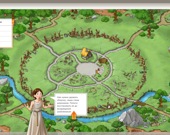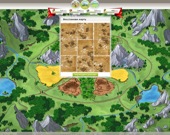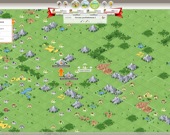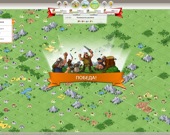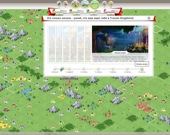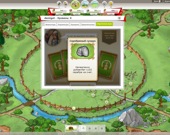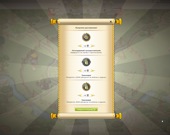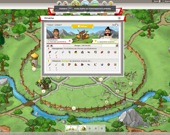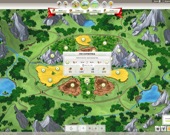Travian: Kingdoms game review
Strategy is one of the most popular genres among browser-based MMOs. And one of the games that stood at its origins, defining the rules and canons of the direction, was Travian, released back in 2004. Aimed at building and developing your own settlements, as well as interaction between users, it became a cult and gained huge popularity. Considering its scale, Travian has turned into a team type of cybersport - even European championships are held on it. The project still exists, but in different versions. Today we will talk about the one that is called Travian: Kingdoms - it has many new features, more attention is paid to the development of your hero and his own kingdom. So why is it not only the newest one at the moment, but also considered to be the most beautiful and designed, let's say, for a mass audience?
About towns and villages
So, like in all the other versions, in Travian: Kingdoms you have to develop your settlement. But first you have to choose the nation you want to play as. The action unfolds in Europe at the turn of Antiquity and Middle Ages, so we have Gauls, Germans and Romans to choose from. Each has its own characteristics, advantages and disadvantages. The Gauls are ideal for newcomers: they are strong in defense, their troops and merchants have great speed. Except that their siege weapons are expensive. The Roman army is the most powerful, but it's slow and expensive. The Germans also have pretty clumsy units, but you can build them up quickly and a lot - soldiers are cheap and can be trained in no time.
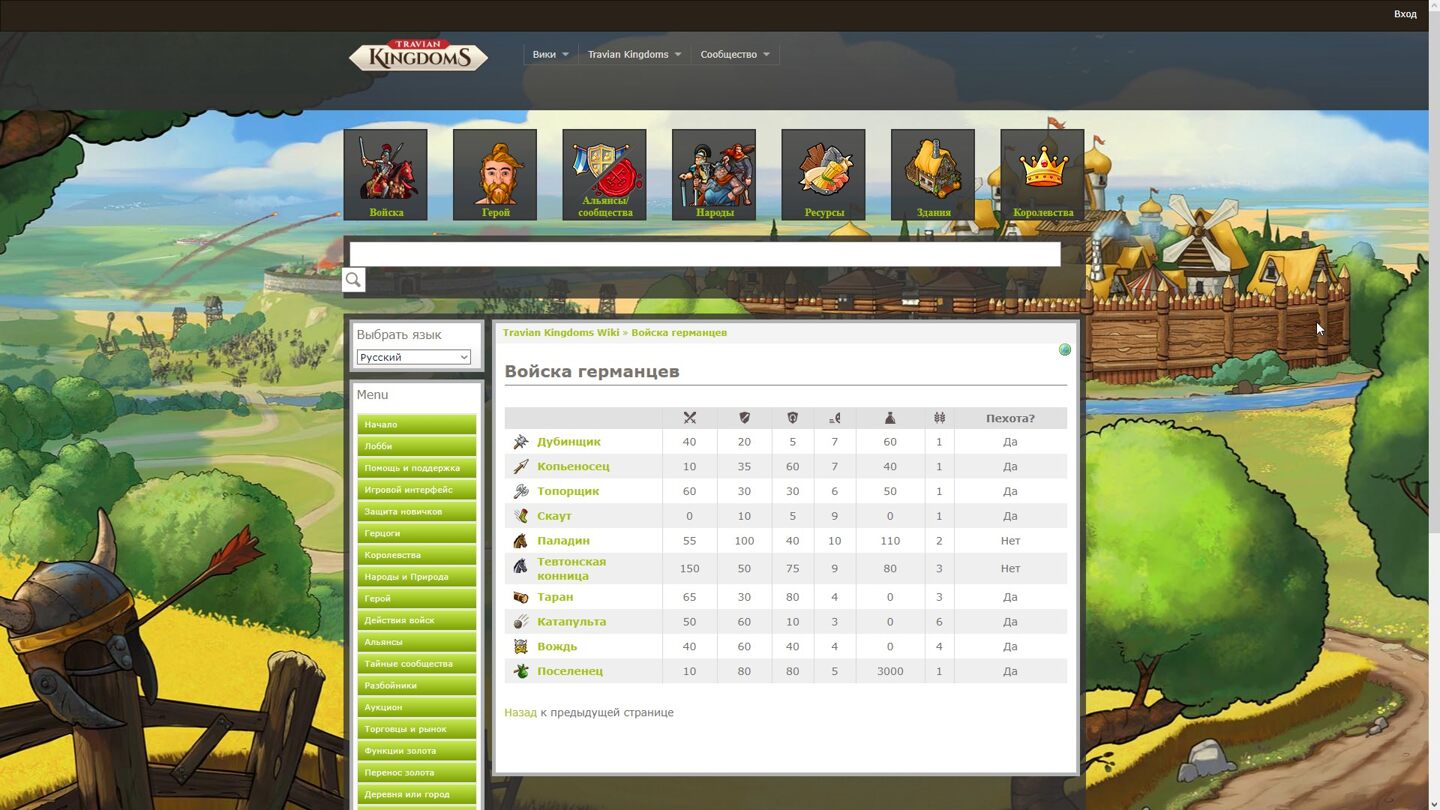
Then everything happens according to a fairly classic scheme. Having obtained his hero and first village, the player must develop it on the settlement screen, erecting and improving various buildings - a warehouse, barn, barracks, embassy, market, stash house, academy, where we learn new types of troops, and so on. On the other screen, we develop deposits of basic resources - wood, grain (that is, we build farms), clay, and iron.
They can also be mined by doing simple but effective quests like "build a barracks and improve it to level 5", "research at least 3 warriors in the academy or improve them in the forge" and so on.
They can also be mined by doing simple but effective quests like "build a barracks and improve it to level 5", "research at least 3 warriors in the academy or improve them in the forge" and so on.
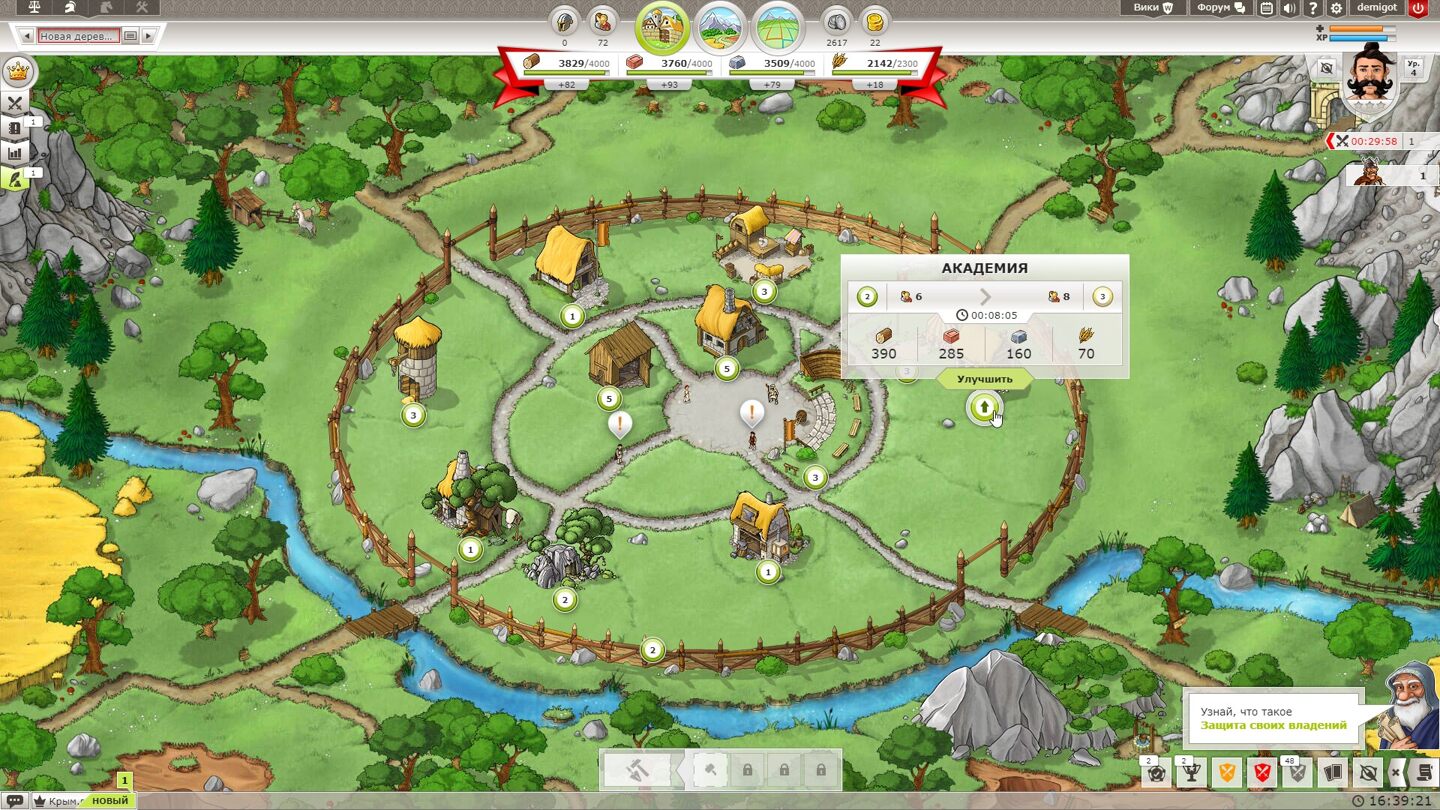
Finally, on the third - global - screen we can expand into neighboring territories, found new settlements, expand our sphere of influence, and raid brigand camps. To do this you need to send there a selected number of troops that can engage not only in direct attacks, but also reconnaissance, raids and sieges. The battles themselves are automatic - we only get their results. Similarly, you need to improve the defense of your village so that other players don't ruin it.
The level of development of a village is determined by the number of its inhabitants. In Travian: Kingdoms it is now possible to turn villages with more than 500 inhabitants into civilized cities. They are very well protected and allow you to improve the resource deposits up to level 12 (in the less advanced settlements is limited to a maximum of 10). However, if such a city is captured, it will become a village again, with all the consequences that entails.
The level of development of a village is determined by the number of its inhabitants. In Travian: Kingdoms it is now possible to turn villages with more than 500 inhabitants into civilized cities. They are very well protected and allow you to improve the resource deposits up to level 12 (in the less advanced settlements is limited to a maximum of 10). However, if such a city is captured, it will become a village again, with all the consequences that entails.
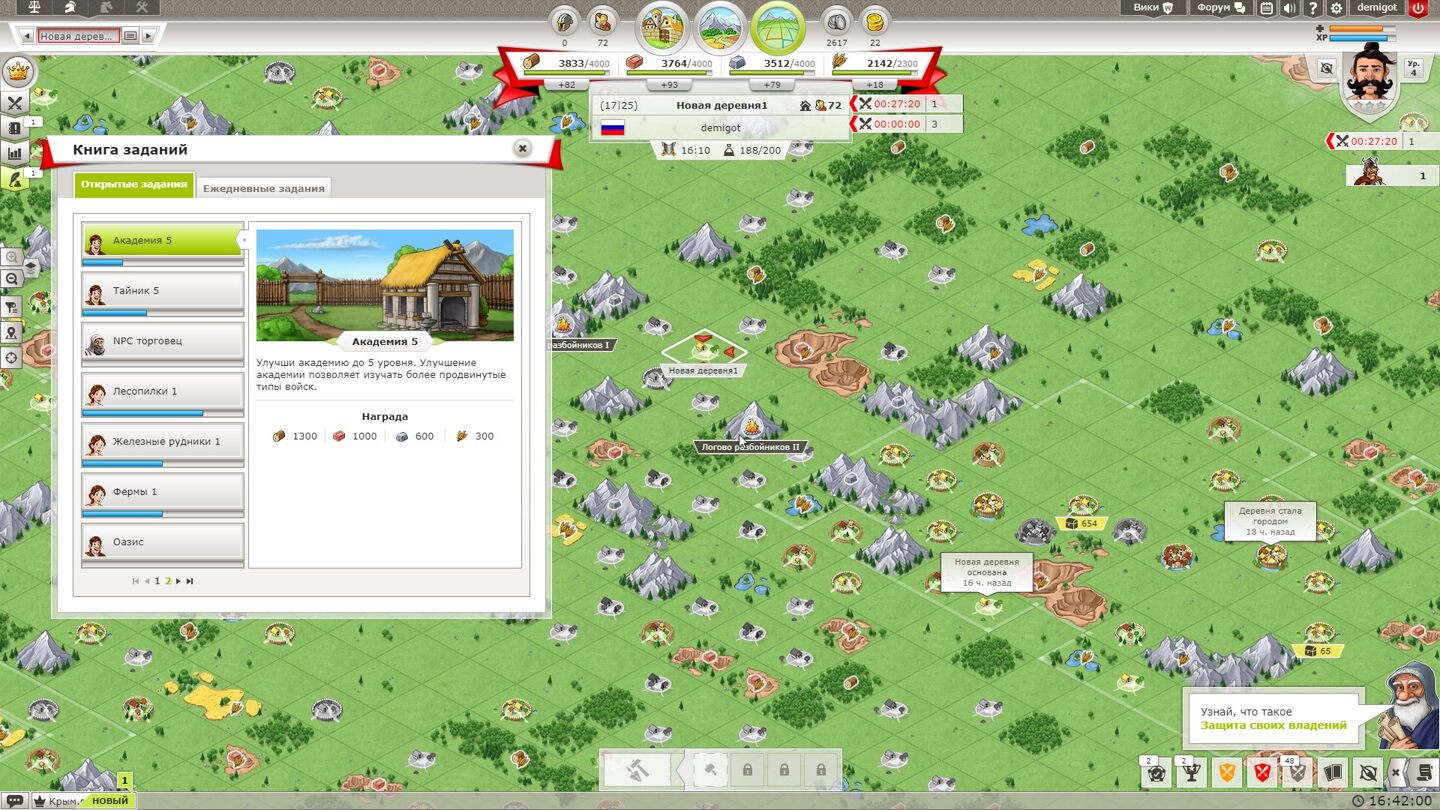
About the hero
Attacking other villages and towns, as well as defending your own settlements, is best done with a hero at the head of your armed forces, who, as we said before, is given special attention in Travian: Kingdoms. Unlike other types of troops, you can not only send him to other settlements, but also register him there for a while to, for example, strengthen the defense in case of need. It can also be developed up to level 100: in this way we improve the character's parameters, which - together with the equipment put on him - give bonuses to the attack or defense of the units assigned to him, as well as to the increase in resources in the village to which he is currently attached.
He can also be sent on adventures to earn experience, resources, useful items, and recruit soldiers. Finally, only the hero gets silver, for which we buy or sell new items of equipment on the exchange.
He can also be sent on adventures to earn experience, resources, useful items, and recruit soldiers. Finally, only the hero gets silver, for which we buy or sell new items of equipment on the exchange.
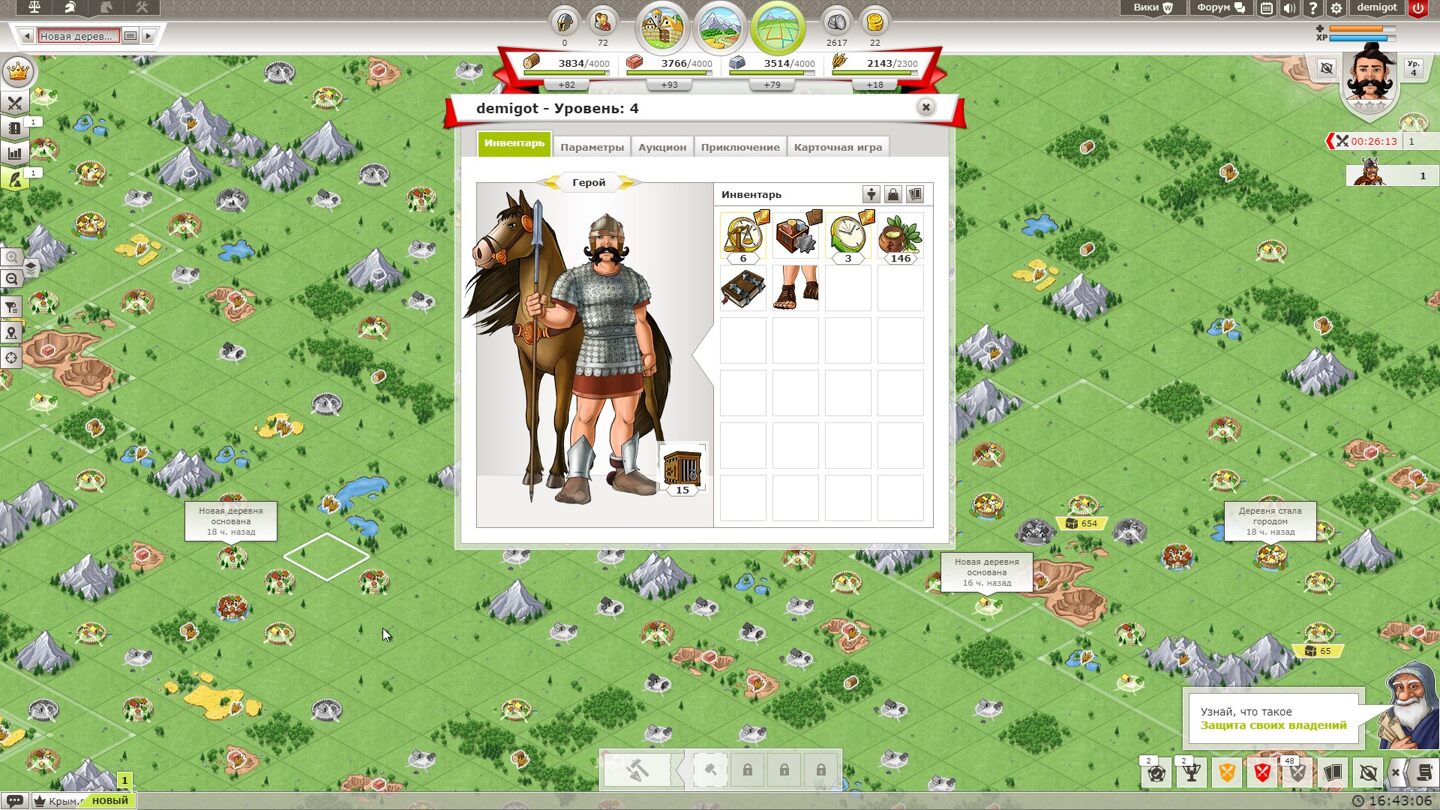
About kingdoms and alliances
The hero can't do much alone, so, again, it's best to use him as part of an army. In Travian: Kingdoms, as a rule, one is not a warrior in the field. You're free to have any number of villages and towns, but sooner or later you'll become easy prey if you won't unite with other players in one or another kingdom (that's how usual guilds/clans/alliances are called here). And you can unite according to the location of the village - that is, with those who are closest to it.
It is the kingdoms are able to achieve the main objective in each game round (ie, season) - to do this, you need to capture the special closed up to time cities in the mountains (they are called "Wonders of the World" and are usually opened on day 111 of the game) and try to be the first to build them to level 100. This takes a lot of combined effort over many months. Members of the alliance should regularly send troops to attack the "Wonders of Light" belonging to other kingdoms, and to protect their own, to develop which should also constantly send resources. And it is better to occupy all the free slots around it with villages, so that the building materials will reach their destination faster.
It is the kingdoms are able to achieve the main objective in each game round (ie, season) - to do this, you need to capture the special closed up to time cities in the mountains (they are called "Wonders of the World" and are usually opened on day 111 of the game) and try to be the first to build them to level 100. This takes a lot of combined effort over many months. Members of the alliance should regularly send troops to attack the "Wonders of Light" belonging to other kingdoms, and to protect their own, to develop which should also constantly send resources. And it is better to occupy all the free slots around it with villages, so that the building materials will reach their destination faster.
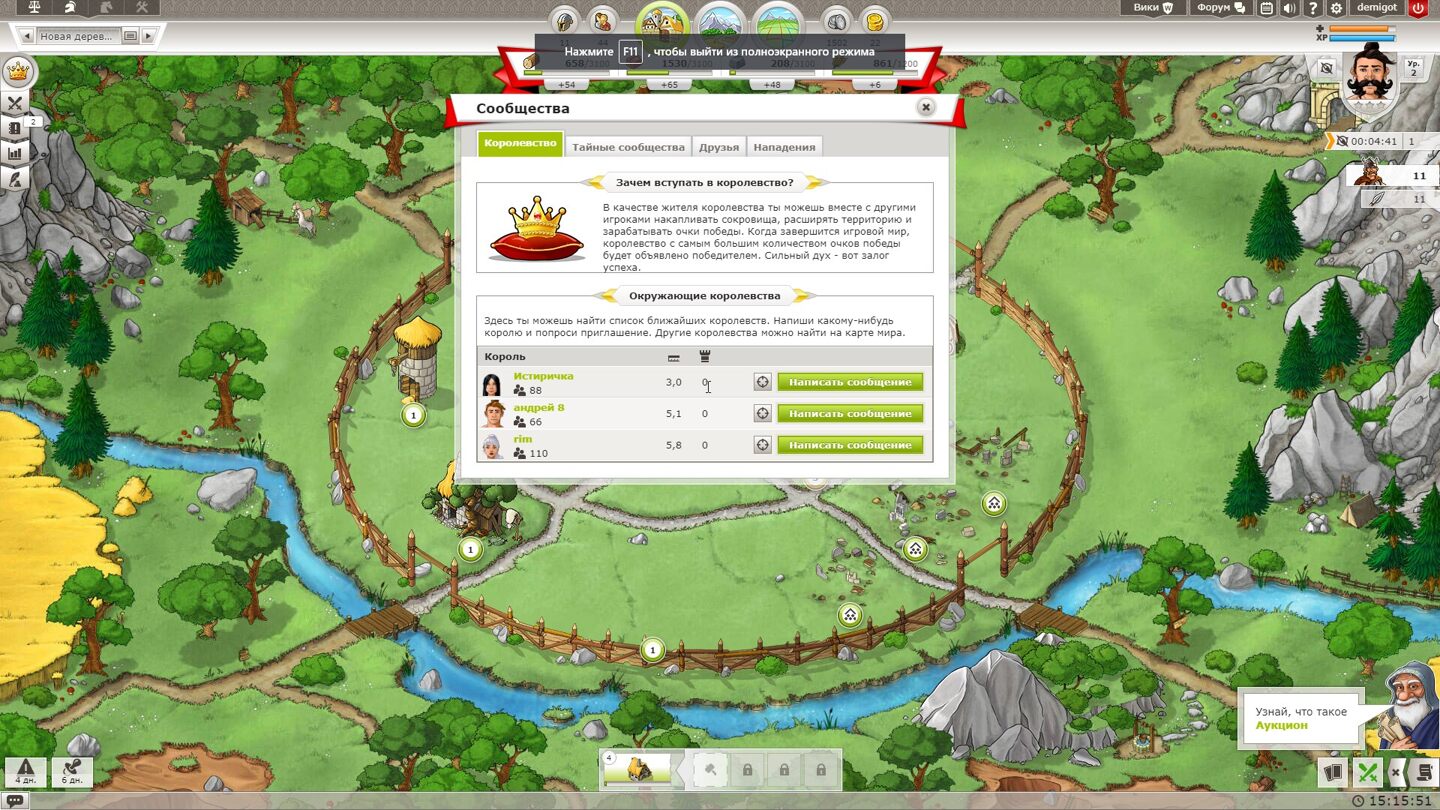
Therefore, in Travian: Kingdoms it is important to decide right away who you are going to play - a king or a governor. The latter, of course, are subordinate to the king as part of the current alliance and have to perform various tasks, but with a minimum of responsibility. They also have the ability to seize special treasure chests in the lairs and camps of brigands, which can be very profitable to sell to the king and get a lot of resources for it. True, do not forget that governors pay tribute to the treasury of the kingdom. In general, the governor is the best choice for beginners, this option allows you to get used to the game quietly enough, without filling your head with global geopolitical problems.
But the role of the king is a very responsible one. It is on his shoulders falls the development of the alliance and the addition of additional lands to the power. The fact is that the villages of kings spread the so-called "influence". If the settlements of the ruler of one country will have more influence (which depends on the number of inhabitants living in them) than the neighboring competitor, then the borders of the first kingdom will expand. In addition, the head of state can invite new governors and appoint some of them as dukes - the latter also increase the influence of their villages if they have a special treasury activated. That is, they are His Majesty's closest intercessors and associates.
Also, the leader of the alliance should think about alliances with other kingdoms and protect the settlements of his vassals. After all, sooner or later different countries begin to touch each other, and then you have to decide whether to enter into a "treaty of cooperation" with its neighbors or to go to war. If you defeat a rival and take his treasure, you get victory points for this - they count towards the totals of each season.
But the role of the king is a very responsible one. It is on his shoulders falls the development of the alliance and the addition of additional lands to the power. The fact is that the villages of kings spread the so-called "influence". If the settlements of the ruler of one country will have more influence (which depends on the number of inhabitants living in them) than the neighboring competitor, then the borders of the first kingdom will expand. In addition, the head of state can invite new governors and appoint some of them as dukes - the latter also increase the influence of their villages if they have a special treasury activated. That is, they are His Majesty's closest intercessors and associates.
Also, the leader of the alliance should think about alliances with other kingdoms and protect the settlements of his vassals. After all, sooner or later different countries begin to touch each other, and then you have to decide whether to enter into a "treaty of cooperation" with its neighbors or to go to war. If you defeat a rival and take his treasure, you get victory points for this - they count towards the totals of each season.
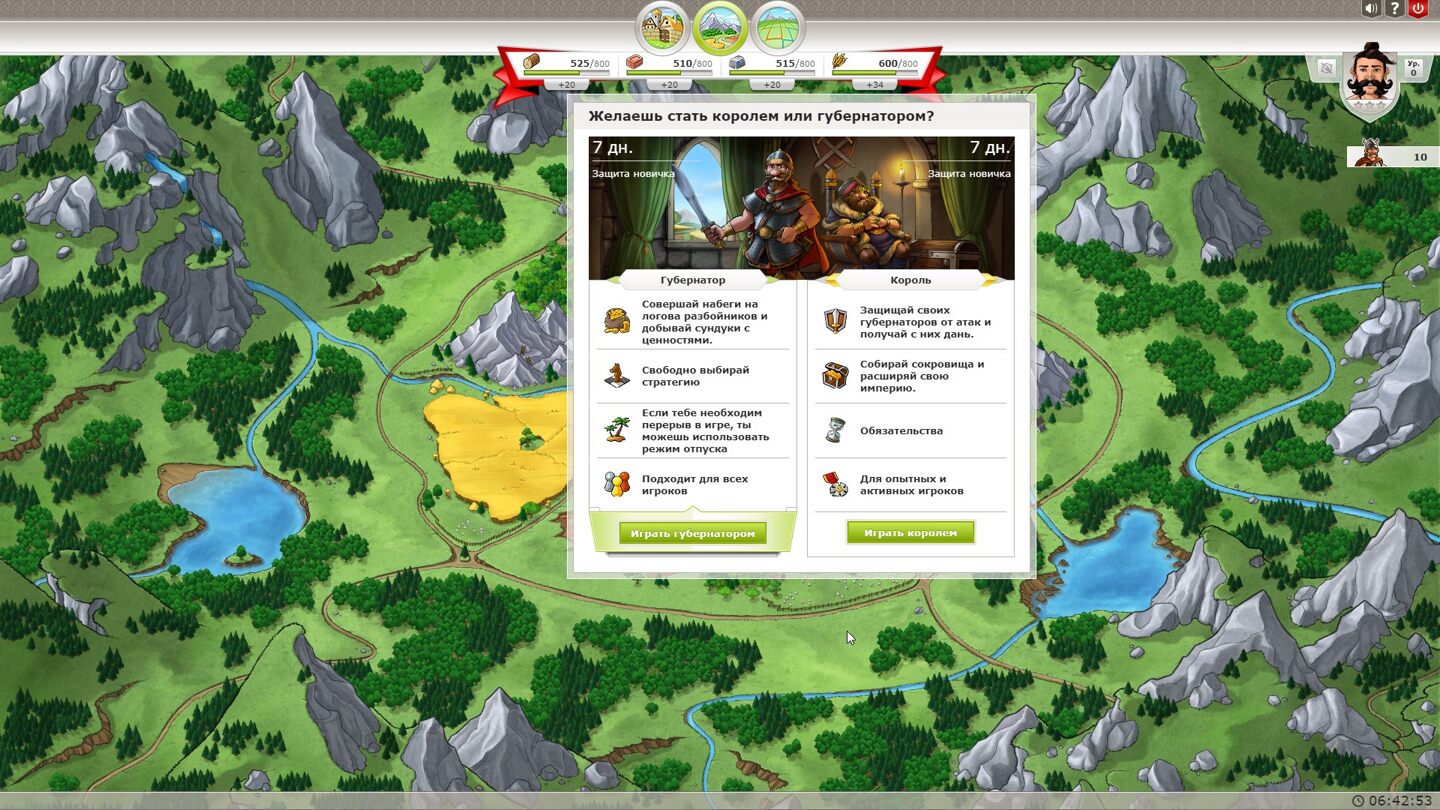
The reward for all these efforts is tribute and treasure from the governors, which the king receives. Therefore, it is more profitable for him to attract strong players to his alliance and expand his territory. As the authors themselves explain, the role of the king is designed for active warrior users, while governors put more effort in the field of economy and village development, and they do not have to spend as much time in Travian as their suzerain.
Another interesting type of interaction between players is the possibility to establish a secret community in an embassy and invite other users to join it. It makes sense that such organizations operate covertly. No one except their members will know about the goals or even the very existence of these associations - unless, of course, someone turns out to be a traitor. Although the goals are roughly clear: the light secret societies are created to protect, and the dark ones are created to attack other villages, players, kingdoms and alliances.
Another interesting type of interaction between players is the possibility to establish a secret community in an embassy and invite other users to join it. It makes sense that such organizations operate covertly. No one except their members will know about the goals or even the very existence of these associations - unless, of course, someone turns out to be a traitor. Although the goals are roughly clear: the light secret societies are created to protect, and the dark ones are created to attack other villages, players, kingdoms and alliances.
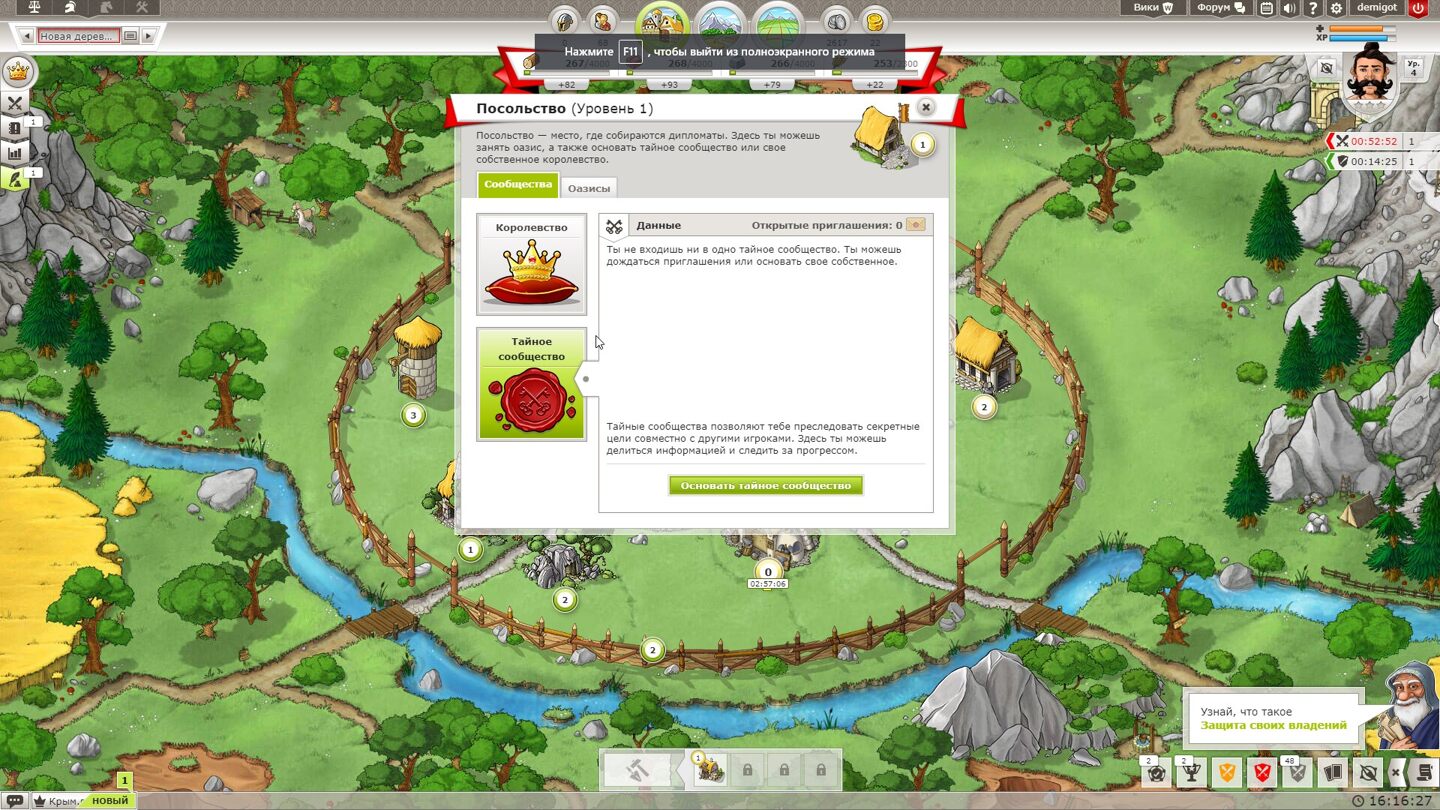
Conclusion
As you can see, Travian: Kingdoms is in many ways a unique game with a special focus on team interaction. In addition, compared to the classic versions of Travian, it has better graphics and interface, more accessible training, and a system of effective quests. And the authors were able to make it so that users have a fair choice: you can sometimes buy for real money (converted into gold) special items that allow faster ranking and reduce the time to perform certain actions, or earn the same gold by the usual in-game way - for example, selling things on the auction. That's why Travian: Kingdoms remains one of the most popular and at the same time deep in mechanics and interesting browser strategies.
December 2020
December 2020

